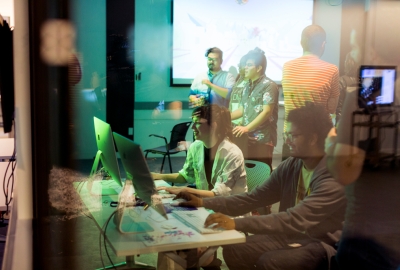Examine digital media for learning in museums (e.g., XR, games, mobile apps, and more). Activities include hands-on exhibit design projects (group and individual), student presentations, museum visits, and case studies. Apply learning theories and design frameworks to analyze an existing museum exhibit, or design your own. Home skills in user research, rapid prototyping, public piloting, iterative design, and securing resources. Accept the challenge of stepping out of your academic comfort zone and developing your own professional success measure
Course #
EDCT-GE 2200
Credits
3
Department
Administration, Leadership, and Technology


